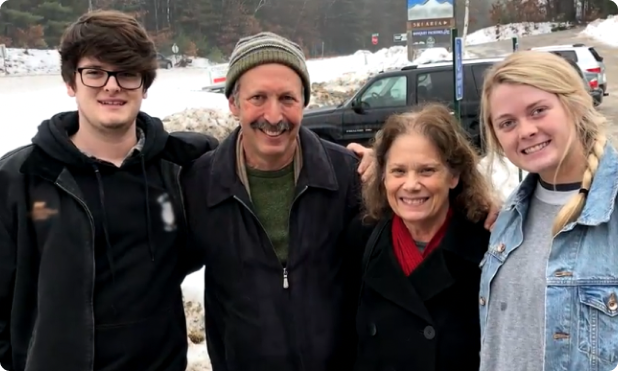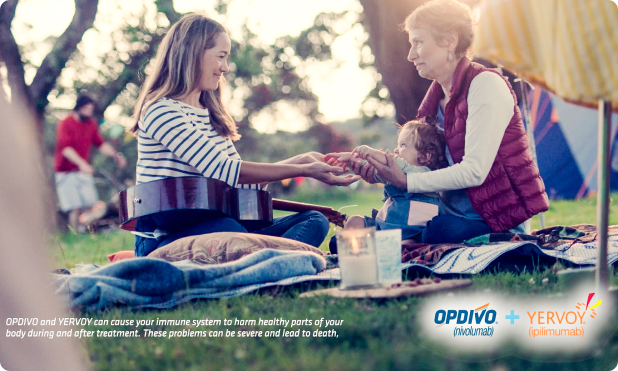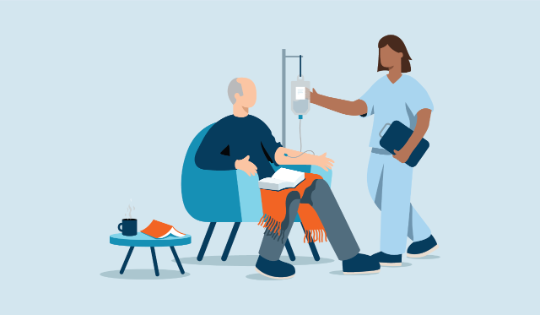

Clinical trial results for
advanced non-small cell
lung cancer (NSCLC)
For certain adults with advanced non-small cell lung cancer (NSCLC) that tests positive for PD-L1


Clinical trial results for
advanced non-small cell
lung cancer (NSCLC)
For certain adults with advanced non-small cell lung cancer (NSCLC) that tests positive for PD-L1
Actor portrayals.
OPDIVO + YERVOY is not approved for people
younger than 18 years of age.
In a clinical trial of 793 people with previously untreated NSCLC whose tumors tested positive for programmed death-ligand 1
(PD-L1), 396 people were given OPDIVO + YERVOY and 397 people were given platinum-based chemotherapy.
Half the people were alive
Half the people were alive
In the primary analysis with a minimum follow-up of 29 months, people given OPDIVO + YERVOY had a 21% lower risk of dying than those given platinum-based chemotherapy.
OPDIVO + YERVOY will not work for everyone. Individual results may vary.
Stacy knows her family has her back. Her husband and sisters showed unwavering support when she was diagnosed, especially when she was diagnosed with advanced lung cancer and treated with OPDIVO + YERVOY.

John is a Navy veteran and a father of four who loves to travel. Learn about his experience with advanced lung cancer and OPDIVO + YERVOY.

Talk to your doctor about a potential first treatment option for advanced lung cancer.

See your recommended treatment plan and what to expect from an infusion
For certain adults with advanced non-small cell lung cancer (NSCLC) that tests positive for PD-L1
OPDIVO® (nivolumab) is a prescription medicine used in combination with YERVOY® (ipilimumab) as a first treatment for adults with a type of advanced stage lung cancer (called non-small cell lung cancer) when your lung cancer has spread to other parts of your body (metastatic) and your tumors are positive for PD-L1, but do not have an abnormal EGFR or ALK gene.
It is not known if OPDIVO is safe and effective in children younger than 12 years of age with melanoma or MSI-H or dMMR metastatic colorectal cancer.
It is not known if OPDIVO is safe and effective in children for the treatment of any other cancers.
OPDIVO (10 mg/mL) and YERVOY (5 mg/mL) are injections for intravenous (IV) use.


